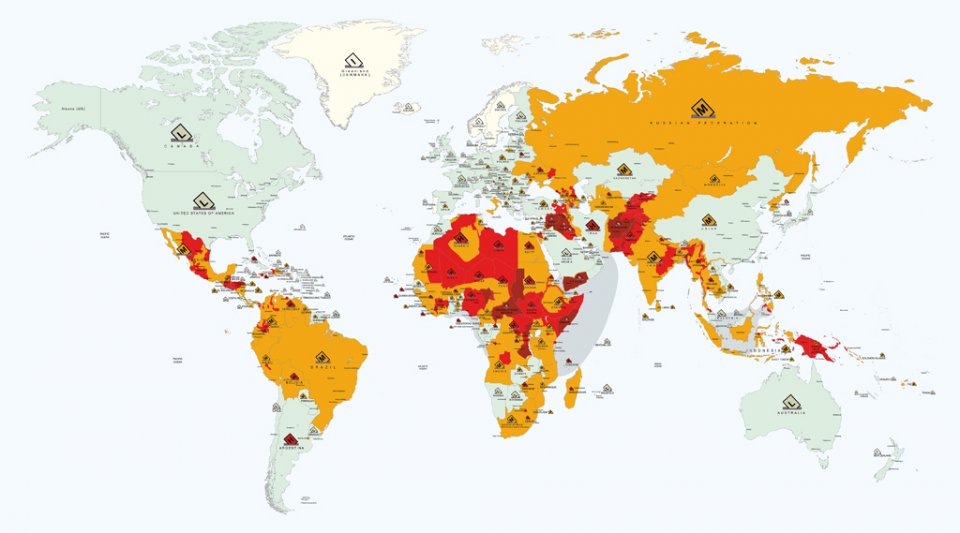Security threats mapped: Here are the riskiest countries to do business in

In recent years, the government has become increasingly keen to encourage UK businesses to trade with developing economies – but with the world still reeling after two major terror attacks in a single week, how safe is it to do business abroad?
Risk consultancy Control Risks has put together a map showing the world's most dangerous territories, suggesting business leaders should keep an eye on the political situation in countries they do business with.
Take a closer look at the map, with a key, here

The company's global research director says the abundance of red on the map is down to "nationalism". "Countries are becoming sensitive creatures when it comes to sovereignty. And their leaders [have] become a bit controlling about what happens on their turf".
What does that mean to businesses? "Have a long think about the leader of the country you’re about to invest in. How comfortable does Mr President or Madame Prime Minister look in the role? Too comfortable and you may be tangling with a despot before you know it. Too nervous and they may not be around for long. And no one likes instability."
Likewise, it's important to look at the surrounding economies. "Have a careful look around the neighbourhood. What do the borders look like? Are they porous and flimsy? Not a good sign – that means they’re open to anything from contraband to little green men."
Which economies will dominate the headlines in 2015?
- "Mexico and Brazil are accidentally starring in the old film Trading Places. Mexico’s economy is outperforming Brazil’s, and structural economic reforms coming from Mexico City are having a transformative effect on growth there. Not too long ago, everyone’s eyes (and budgets) were focused on growth in Brazil, the B in the BRICs. International investors have a wandering eye.
- "Relations between Russia and the West are spoiled beyond repair for the foreseeable future. Russia sees the West as irreversibly hostile to that country’s regional authority and its political, social and economic course. The West has finally learned that Russia isn’t going to morph into a Western European liberal democracy, no matter how long we wait. In politics, this will lead to enduring standoffs, though all hope is not lost for cooperation on crucial issues like Iran. Economically, Russia will be a difficult investment decision in the near term. The optics are difficult, and the country is slipping into recession.
- "Iraq and Syria will not get any better in the near term. In fact, conditions may worsen as the conflicts and the power centres in the two countries continue to disintegrate along ethnic and sectarian lines. These two conflicts will continue to export instability around the region and the world. Air strikes have thus far proven only to retard, but not destroy, IS’s progress. Along those lines, we will see Gulf states play an increasing role in regional security, seeking to fill a perceived gap in US engagement in the area.
- "Get used to reading about Iran for another six months; negotiations over Iran’s nuclear programme have been extended yet again. We remain optimistic that talks will not break down and a deal will be reached. That said, time is running short. A more conservative US Congress is about to take residence in Washington, DC. Sentiment there may take a sharp right turn and see the US’s stance against Iran go hard-line."